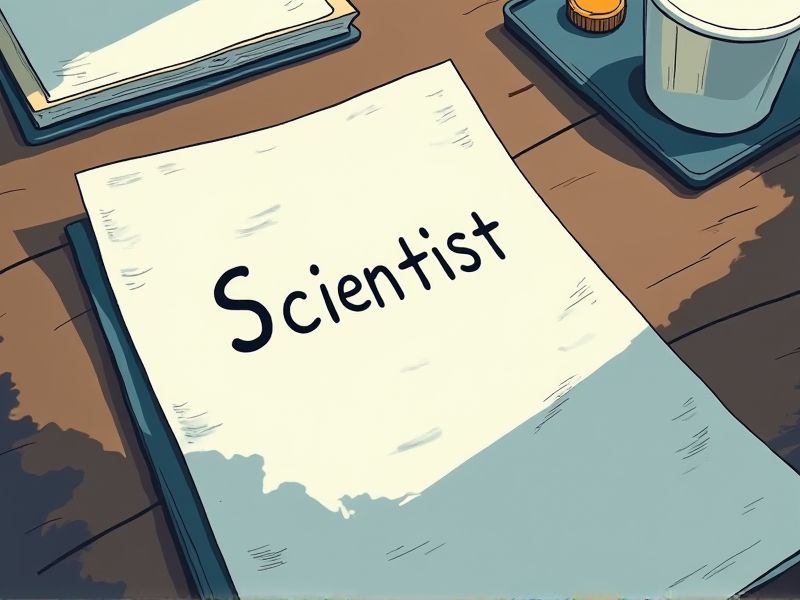
Forensic scientists play a pivotal role in the criminal justice system by ensuring the accuracy and credibility of evidence. Certifications enhance their expertise, providing standardized training and validating their skills across different forensic disciplines. This professional recognition is crucial because it strengthens courtroom testimony and boosts the scientist's reliability. Considering these responsibilities, here are some important certifications you may need as a forensic scientist.
Certified Forensic Scientist (CFS)
Having a Certified Forensic Scientist (CFS) ensures expertise and adherence to industry standards, which reduces errors in forensic analysis. Certification verifies that a forensic scientist has undergone rigorous training and testing, enhancing the credibility of their findings in legal contexts. The presence of a CFS status boosts confidence among law enforcement, legal professionals, and the public in the integrity of forensic evidence. In a field where precision is critical, certified professionals help safeguard against wrongful convictions by maintaining high analytical standards.
Board Certification in Forensic Toxicology (ABFT)
Board Certification in Forensic Toxicology ensures standardized competence and credibility among forensic scientists, enhancing trust in legal proceedings. This certification provides validation of specialized knowledge and adherence to ethical standards, crucial for accurate forensic evaluations. Court systems often require or strongly prefer testimony from certified experts, directly impacting case outcomes. In competitive fields, holding an ABFT certification can lead to increased professional opportunities and career advancement.
Board Certification in Forensic Pathology (ABP)
Board Certification in Forensic Pathology by the American Board of Pathology ensures a forensic scientist has met rigorous education and training criteria. Certification creates a standardized knowledge base, critical for accurate post-mortem examinations and legal proceedings. It enhances credibility in legal contexts, where expert testimony often influences case outcomes. The certification process promotes continual learning, keeping forensic scientists updated on advances in the field.
Certified Crime Scene Investigator (CCSI)
Having a Certified Crime Scene Investigator (CCSI) in forensic teams ensures that crime scenes are processed systematically, preserving crucial evidence. This certification equips professionals with the knowledge to accurately document and collect evidence, which directly impacts the later stages of forensic analysis. A trained CCSI can reduce the chances of evidence contamination or loss, enhancing the credibility of findings in court. Accurate scene interpretation by CCSI aids forensic scientists in making informed conclusions, linking evidence to suspects or victims more reliably.
Certified Computer Examiner (CCE)
Having a Certified Computer Examiner (CCE) enhances the credibility of a forensic scientist, as it validates their ability to expertly analyze digital evidence. This certification requires rigorous testing, demonstrating the professional's competency in tackling complex computer-related investigations. With the rise of cybercrime, possessing CCE credentials ensures the forensic scientist remains adept and knowledgeable in both current methods and technologies. Employers and legal entities gain confidence in the forensic scientist's skills, increasing the legal weight of their findings in court.
Certified Digital Forensics Examiner (CDFE)
Forensic scientists often encounter digital evidence during investigations, and a CDFE provides them with the expertise to accurately analyze and interpret this data. The increase in cybercrime results in a higher demand for specialized skills in digital forensics to ensure thorough investigations. Legal standards require that evidence handling maintains integrity, and a CDFE ensures compliance with these protocols. Cross-disciplinary knowledge enhances the forensic scientist's capability to solve complex cases involving both physical and digital evidence.
Certified Fraud Examiner (CFE)
Certified Fraud Examiner (CFE) certification ensures forensic scientists possess specialized skills to identify and prevent financial fraud schemes. By holding a CFE designation, forensic scientists can effectively analyze financial discrepancies and anomalies in investigations. This expertise allows them to establish credibility and provide concrete evidence in legal cases. With CFE skills, they strengthen the overall accuracy and depth of forensic investigations tied to financial crimes.
International Association for Identification (IAI) Certification
Obtaining IAI Certification validates a forensic scientist's expertise and adherence to industry standards, which increases credibility in legal settings. Certification ensures ongoing education and skill development, crucial for staying current with evolving forensic technologies and methodologies. It enhances employability and career advancement opportunities by distinguishing certified professionals in a competitive job market. Meeting IAI Certification standards fosters a commitment to professional ethics, crucial for maintaining public trust in forensic investigations.
Certified Firearms and Toolmark Examiner (CFTE)
A Certified Firearms and Toolmark Examiner (CFTE) is crucial for forensic scientists because they provide specialized analysis of ballistic evidence, which is vital in connecting firearms to crime scenes. The expertise of a CFTE enables accurate identification and comparison of toolmarks, helping to distinguish between individual weapons and tools involved in a crime. Their ability to interpret ballistic data aids in reconstructing crime scenes, often leading to clearer insights and stronger legal cases. The CFTE's proficiency in firearms and toolmark examination ensures the reliability and integrity of forensic evidence presented in court.
Forensic Anthropology Certification (FAC)
Forensic Anthropology Certification improves a forensic scientist's credibility in court by verifying their expertise in human skeletal analysis. This certification ensures standardized procedures and methodologies, minimizing errors and enhancing the reliability of case assessments. FAC holders tend to meet the rigorous demands of diverse forensic investigations, from identifying remains to understanding trauma patterns. Earning certification also often leads to increased professional recognition and expanded career opportunities in forensic science.
Summary
When you, as a forensic scientist, obtain relevant certifications, you enhance your credibility and professional standing. These credentials can lead to more career opportunities and specialized roles within forensic science. Certification often results in the acquisition of advanced skills and knowledge applicable to solving complex cases. It also contributes to higher confidence from peers and stakeholders in your forensic analyses and testimonies.
